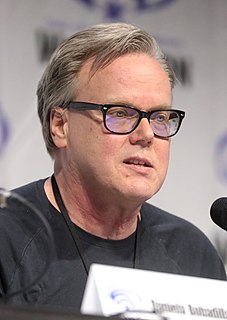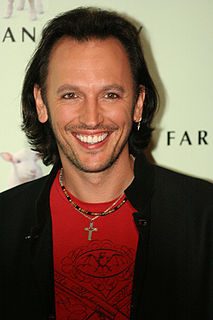A Quote by Penelope Lively
We read Greek and Norse mythology until it came out of our ears. And the Bible.
Related Quotes
I had been a reader of THOR in college. I had read the Stan Lee and Jack Kirby stuff. I had loved it. I had been a Norse mythology fan since I was a kid and was thrilled to discover a comic that was kind of based on Norse mythology-there's not a one-to-one correspondence, but there's no reason there should be. I was delighted to find it, and I didn't care that it wasn't exactly the myth. For one thing, Thor didn't have red hair in the comics. I was fine with that.
I was nurtured on Greek Mythology and the classical epics. I lived and breathed Homer. Other mythologies - the Russian, the Norse, the Persian, the Indian, Egyptian, etc. - all came later. First and foremost were the Greeks, and they were all living in my head as though I were Zeus and they were a clamoring Chorus of Athenas.
I have always been interested in mythology and history. The more I read, the more I realized that there have always been people at the edges of history that we know very little about. I wanted to use them in a story and bring them back into the public's consciousness. Similarly with mythology: everyone knows some of the Greek or Roman legends, and maybe some of the Egyptian or Norse stories too, but what about the other great mythologies: the Celtic, Chinese, Native American?
I did have the resource of having taught Greek mythology and the history of Western civilization, and you can go back into the plays of Aeschylus and follow what happens when people seek revenge, and there are people plucking their eyes out. And Greek mythology is filled with all kinds of monsters and whatnot.
read the Bible to the children, until they are old enough to read for themselves ... The Bible, not nursery versions of it. There is a Bible in words of one syllable; I am happy to say I have never seen it. Such a monstrosity should be put alongside of the Rhyming Bible, of which, I believe, only one copy is in existence.
What they teach you as history is mythology and true mythology is far from fantasy -- it is our true history. A bulk of our real history can be found in Egyptian and Greek mythology. Yes, myths reveal to us worlds of other dimensions that make up our true reality. History books teach us that the minds of the past operated on the same frequency, dimension, or level of consciousness as we do now. Not true at all.


































